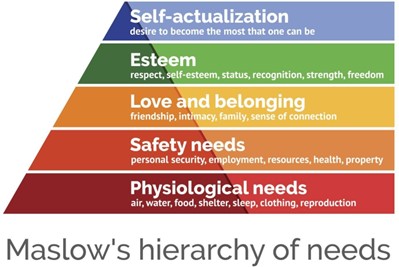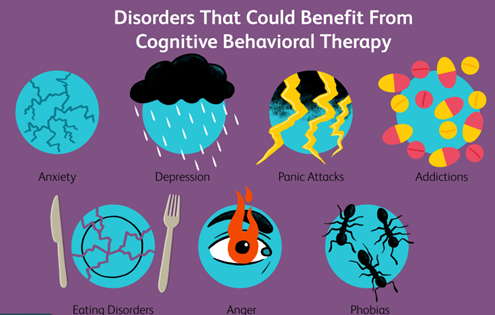A nurse uses Maslow’s hierarchy of needs to plan care for a psychotic patient. Which problem will receive higher priority? The patient who:
Select one:
needs to be taught about medication action and side effects.
refuses to eat or bathe.
reports feelings of alienation from family.
is reluctant to participate in unit social activities.
The Correct Answer is B
According to Maslow’s hierarchy of needs, physiological needs such as food and hygiene are the most basic and fundamental needs that must be met before higher-level needs can be addressed. Therefore, a patient who refuses to eat or bathe would receive higher priority in care planning.

Nursing Test Bank
Naxlex Comprehensive Predictor Exams
Related Questions
Correct Answer is A
Explanation
Individuals with OCD often engage in compulsive behaviors as a way to reduce anxiety or distress. In this case, the client’s behavior of constantly picking up after others in the day room may be a compulsion that helps them decrease their anxiety to a tolerable level.
Correct Answer is A
Explanation
Cognitive therapy is a type of psychotherapy that focuses on identifying and changing negative thought patterns and beliefs that contribute to psychological distress. In this case, the single parent is experiencing feelings of inadequacy related to work and family since one teenaged child ran away 2 weeks ago. The cognitive therapist would work with the client to identify any negative or distorted thoughts they may be having about themselves, their situation, and their ability to cope.
Through cognitive therapy, the therapist would help the client learn how to challenge and change their negative thoughts and beliefs, replacing them with more realistic and positive ones. The goal of cognitive therapy is to help the client develop new coping skills and ways of thinking that will enable them to better manage their emotions and improve their overall well-being.
Option b, negatively reinforcing an undesirable behavior every day to avoid it, is not a component of cognitive therapy. This approach is more aligned with behavioral therapy, which focuses on modifying behaviors through reinforcement and punishment.
Option c, focusing on conscious mental processes, is partially correct, as cognitive therapy does focus on conscious mental processes. However, this alone does not fully capture the essence of cognitive therapy.
Option d, always discussing Freud ego stages, is not relevant to cognitive therapy, as it is a psychoanalytic approach developed by Freud that focuses on the unconscious mind and early childhood experiences.

Whether you are a student looking to ace your exams or a practicing nurse seeking to enhance your expertise , our nursing education contents will empower you with the confidence and competence to make a difference in the lives of patients and become a respected leader in the healthcare field.
Visit Naxlex, invest in your future and unlock endless possibilities with our unparalleled nursing education contents today
Report Wrong Answer on the Current Question
Do you disagree with the answer? If yes, what is your expected answer? Explain.
Kindly be descriptive with the issue you are facing.
